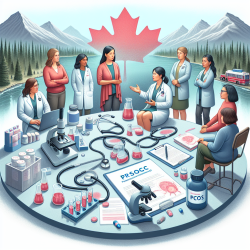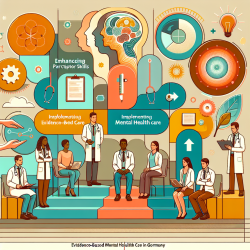Enhancing Online Therapy Services: Lessons from the BRCA-Gist Experience
In the realm of online therapy services, especially in educational settings, the integration of evidence-based interventions (EBIs) is pivotal for improving outcomes. The research article titled Adapting a Theoretically-Based Intervention for Underserved Clinical Populations at Increased Risk for Hereditary Cancer: Lessons Learned from the BRCA-Gist Experience provides valuable insights that can be adapted to enhance online therapy practices.
Understanding the BRCA-Gist Intervention
The BRCA-Gist intervention is a theory-informed EBI designed to enhance genetic counseling and testing (GCT) uptake among underserved populations at risk for hereditary breast and ovarian cancer (HBOC). It utilizes Fuzzy Trace Theory (FTT) to help individuals form gist representations of complex genetic information, which aids in informed decision-making.
Key Findings and Their Implications for Online Therapy
The research highlights several critical findings that can be translated into the context of online therapy services:
- Adaptation for Diverse Populations: The study emphasizes the need for culturally and contextually adapted interventions to increase accessibility and effectiveness among diverse populations. This is particularly relevant in educational settings where students come from varied backgrounds.
- Balancing Fidelity and Adaptation: Maintaining the core components of an intervention while adapting it to fit specific populations is crucial. Online therapy services can benefit from this approach by ensuring that interventions remain effective while being tailored to meet the needs of diverse student populations.
- Interactive and Engaging Content: The BRCA-Gist intervention’s use of avatars and interactive dialogues underscores the importance of engaging content in facilitating understanding and retention. Online therapy platforms can incorporate similar interactive elements to enhance student engagement and learning outcomes.
Encouraging Further Research and Implementation
Practitioners in the field of online therapy are encouraged to delve deeper into the principles of Fuzzy Trace Theory and the BRCA-Gist intervention. By doing so, they can explore innovative ways to adapt these insights into their practice, ultimately improving the reach and impact of online therapy services.
Moreover, the integration of Implementation Science frameworks, as demonstrated in the BRCA-Gist study, can guide practitioners in systematically adapting and evaluating interventions. This approach ensures that online therapy services are not only theoretically sound but also practically viable and effective in real-world educational settings.
Conclusion
The lessons learned from the BRCA-Gist experience offer valuable guidance for enhancing online therapy services in educational settings. By adopting a theoretically informed and culturally sensitive approach, practitioners can improve the accessibility and effectiveness of their interventions, ultimately benefiting diverse student populations.
To read the original research paper, please follow this link: Adapting a Theoretically-Based intervention for underserved clinical populations at increased risk for hereditary Cancer: Lessons learned from the BRCA-Gist experience.










